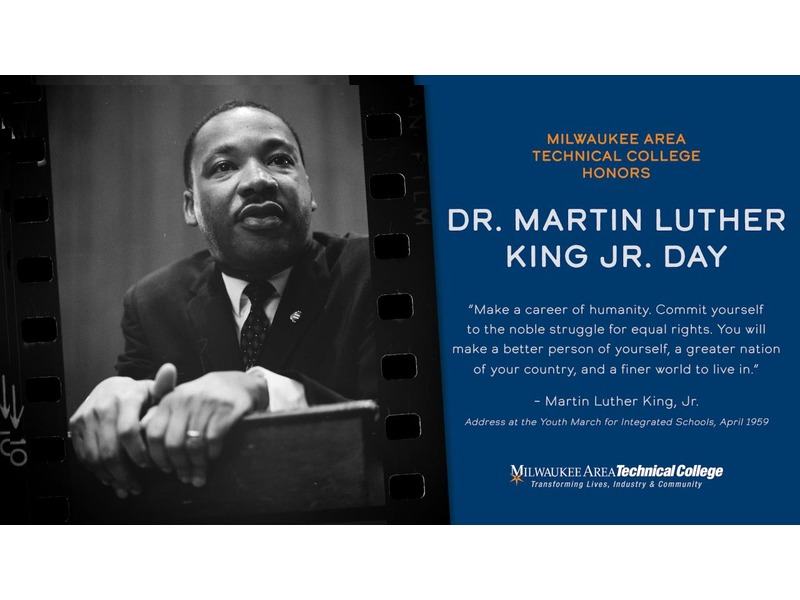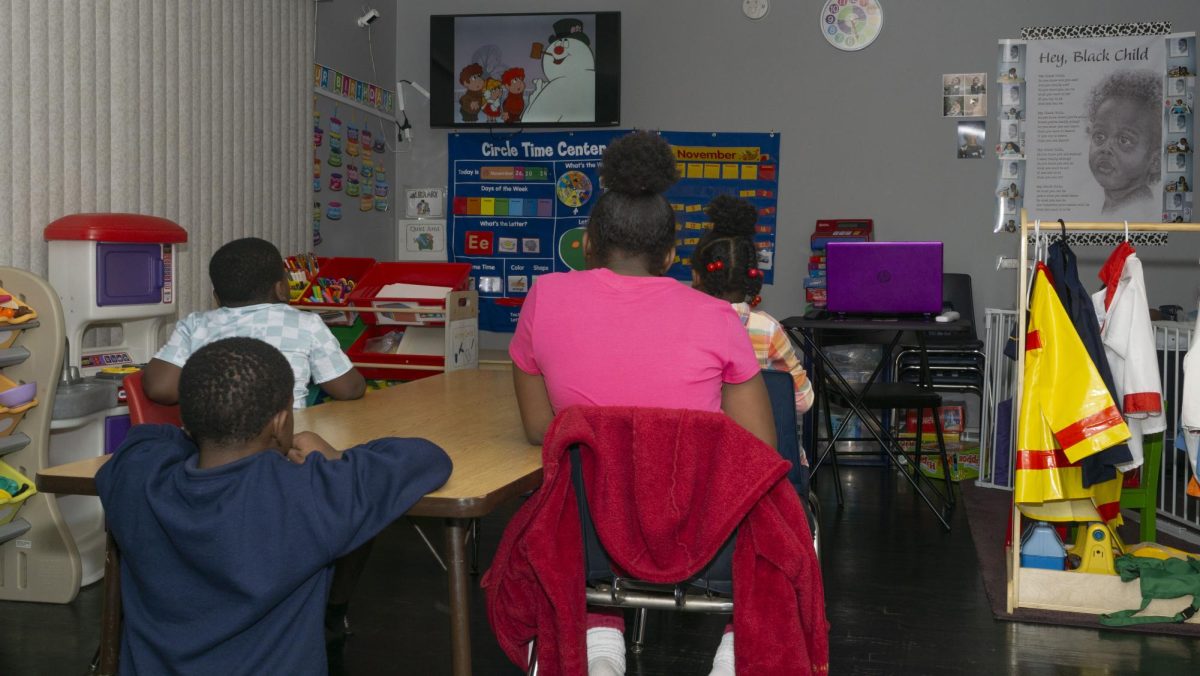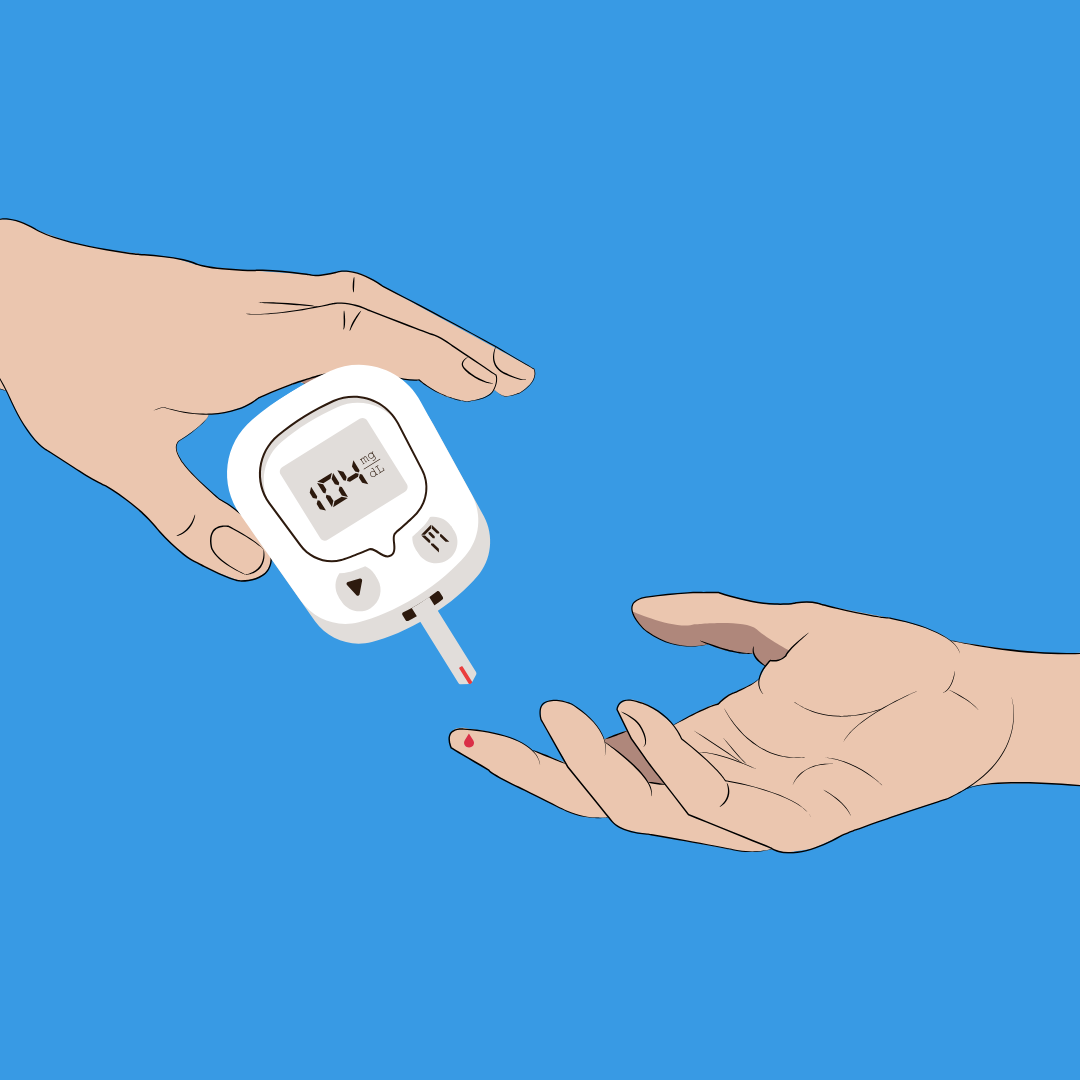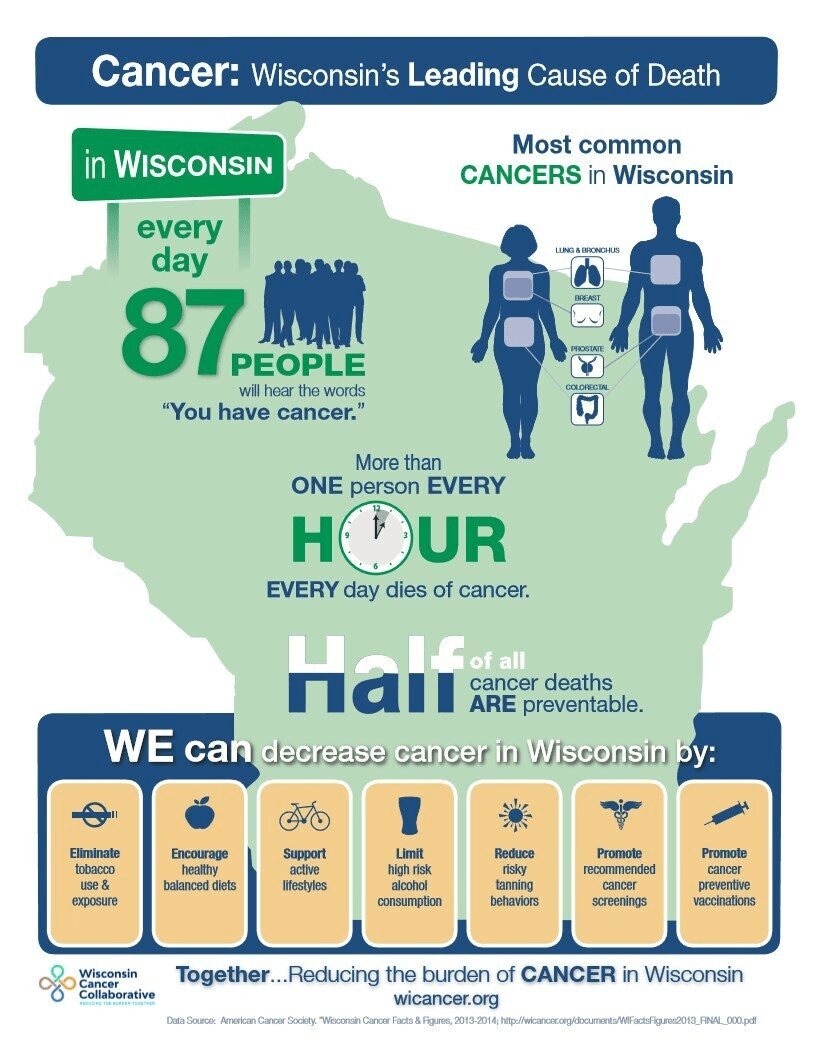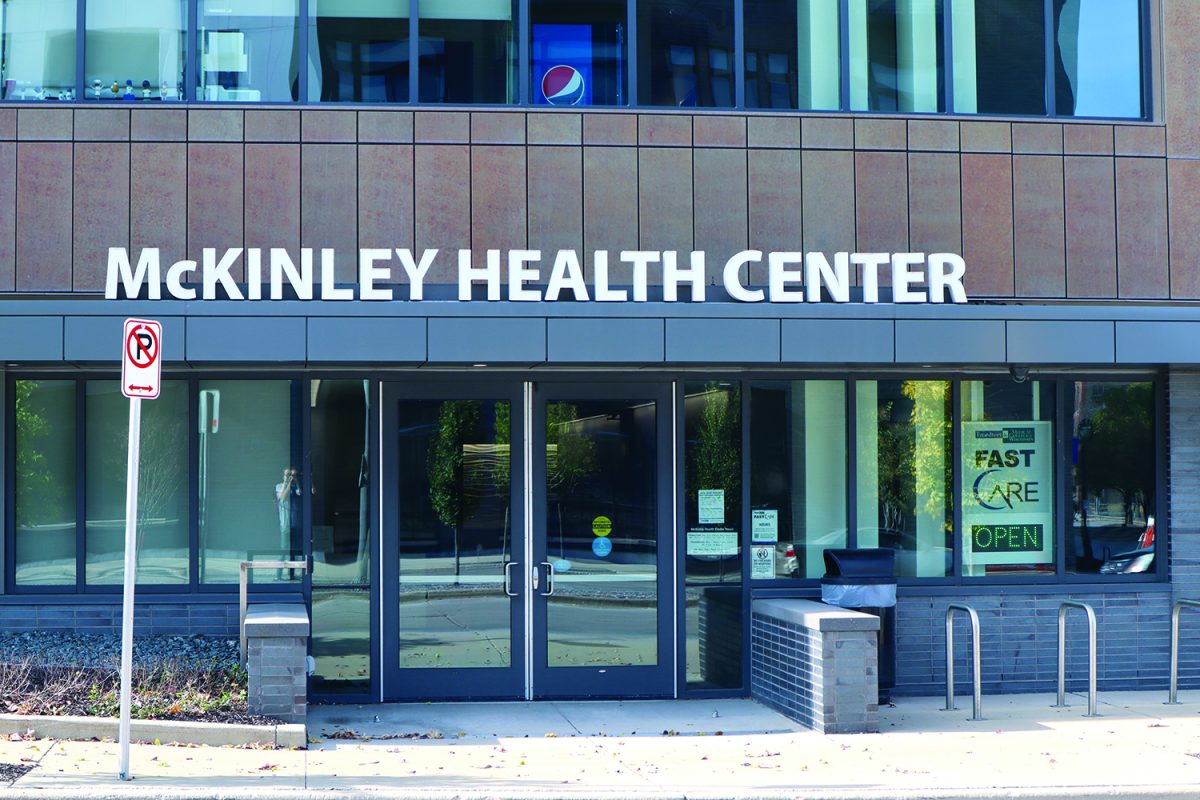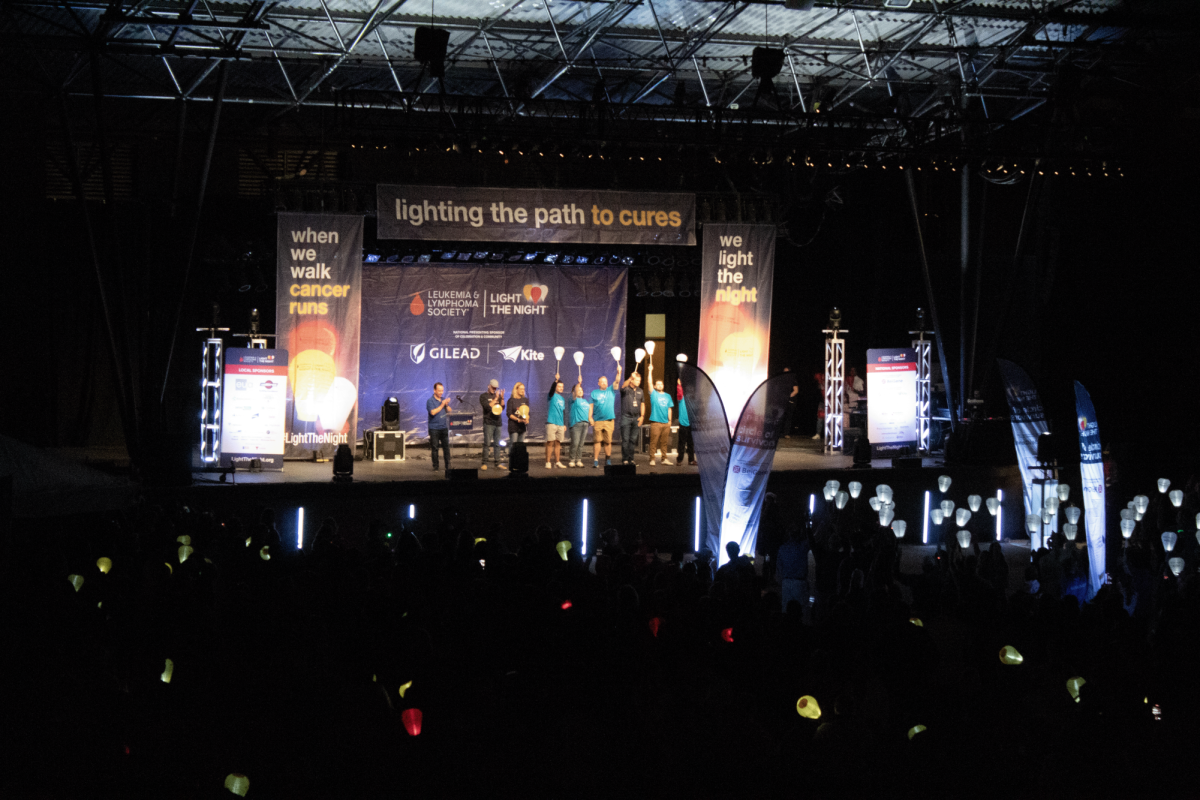February is National Cancer Prevention Month. Throughout the month, it’s a great time to reflect on ways to reduce your risk of cancer and to take actions to create a healthier life and community.
Common risk factors for cancer include sedentary lifestyles, excess body fat, and poor-quality diets. We can reduce cancer risk by improving access to cancer screenings, annual check-ups, and promotion of health behaviors such as exercise, quitting smoking, healthy nutritional meals, and limiting alcohol use.
Take the Cancer Prevention Quiz here to test your knowledge and learn more about cancer risk reduction.
Learn more regarding common cancer screenings from Froedtert Health (excerpts are included below).
Breast Cancer Screening: Women at average risk of developing breast cancer should get a screening mammogram each year, beginning at age 40. If you have certain risk factors, such as a family history of breast cancer, talk with your doctor about screening and the best way to manage your risk. Learn more about breast cancer screening.
Prostate Cancer Screening: The American Cancer Society recommends men who are at average risk of prostate cancer begin a conversation with their doctor at age 50 about whether and when prostate cancer screening is right for them. African American men are at higher risk at a younger age and should start the conversation earlier. Learn more about prostate cancer screening.
Colorectal Cancer Screening: Men and women who have average risk of developing colorectal cancer should have their first colonoscopy at age 45. Talk with your primary care doctor to determine when screening should begin for you given your family and personal medical history, the appropriate interval between tests, and which screening test is most suitable. Learn more about colorectal cancer screening.
Cervical Cancer Screening: Talk with your doctor about screening with an HPV or a PAP test and your personal risk factors for cervical cancer. According to the American Cancer Society, cervical cancer testing (screening) should begin at age 25. Learn more about cervical cancer screening.
Lung Cancer Screening: Lung cancer screening is not recommended for people who are at average risk. To be eligible for lung cancer screening using an annual low-dose CT scan of the chest, you must have certain high-risk factors, and you must be evaluated and discuss screening with your physician. Learn more about lung cancer screening.
Skin Cancer Screening: Regular exams by your doctor and checking your own skin frequently can help find skin cancer early when it is easier to treat with a better outcome. This is especially important for people who are at higher risk of developing skin cancer. Talk with your doctor about your own risk. Learn more about skin cancer screening.
Head and Neck Cancer Screening: Head and neck cancers are seen more often in men and women older than age 50, but they can happen to younger people, too. Alcohol and tobacco use are two of the most significant risk factors for developing head and neck cancer. If you have any unusual symptoms, get checked by your doctor right away. Some of the early warning signs include:
- A sore in your mouth that does not heal
- Difficulty chewing, swallowing or moving your tongue
- Change in your voice
- A lump in your neck
- Persistent sore throat
Community Resources for services:
The Wisconsin Well Woman Program does offer screenings. (Please check eligibility guidelines.)
The Wisconsin Tobacco Quit Line is now offering eight weeks of medications which include nicotine replacement therapies such as the Nicotine Lozenge, Nicotine Patch and Nicotine Gum (shipped for free). Wisconsin residents who want to quit smoking, vaping or chewing tobacco can access help by calling 1-800-QUIT-NOW or accessing the Quit Line link.
There are one in six cancer-related deaths worldwide each year and in Wisconsin, cancer is the leading cause of death. Please do your part to decrease those numbers.
Article source: American Association for Cancer Research.




